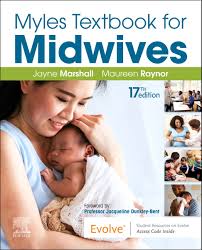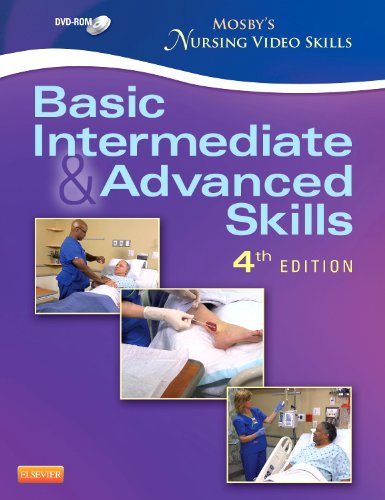1 Orientation to Pharmacology
2 Application of Pharmacology in Nursing Practice
3 Drug Regulation, Development, Names, and Information
UNIT TWO Basic Principles of Pharmacology
7 Adverse Drug Reactions and Medication Errors
8 Individual Variation to Drug Responses
9 Genetic and Genomic Considerations
10 Introduction to Immunomodulators
UNIT THREE Drug Therapy Across the Life Span
11 Drug Therapy During Pregnancy and Breastfeeding
12 Drug Therapy in Pediatric Patients
13 Drug Therapy in Older Adult Patients
UNIT FOUR Peripheral Nervous System Drugs
14 Basic Principles of Neuropharmacology
15 Physiology of the Peripheral Nervous System
Section 2 Cholinergic Drugs
17 Muscarinic Antagonists
18 Cholinesterase Inhibitors and Their Use in Myasthenia Gravis
19 Drugs That Block Nicotinic Cholinergic Transmission
Section 3 Adrenergic Drugs
21 Adrenergic Antagonists
22 Indirect-Acting Antiadrenergic Agents
UNIT FIVE Central Nervous System Drugs
23 Introduction to Central Nervous System Pharmacology
Section 5 Drugs for Neurodegenerative Disorders
24 Drugs for Parkinson Disease
25 Drugs for Alzheimer Disease
26 Drugs for Multiple Sclerosis
Section 6 Neurologic Drugs
27 Drugs for Seizure Disorders
28 Drugs for Muscle Spasm and Spasticity
31 Opioid Analgesics, Opioid Antagonists, and Nonopioid Centrally Acting Analgesics
32 Pain Management in Patients with Cancer
Section 8 Psychotherapeutic Drugs
34 Antipsychotic Agents and Their Use in Schizophrenia
36 Drugs for Bipolar Disorder
37 Sedative-Hypnotic Drugs
38 Management of Anxiety Disorders
39 Central Nervous System Stimulants and Attention-Deficit/Hyperactivity Disorder
Section 9 Substance Use Disorders
40 Substance Use Disorders I: Basic Considerations
41 Substance Use Disorders II: Alcohol
42 Substance Use Disorders III: Nicotine
43 Substance Use Disorders IV: Major Drugs of Abuse Other Than Alcohol and Nicotine
UNIT SIX Drugs That Affect Fluid and Electrolyte Balance
45 Agents Affecting the Volume and Ion Content of Body Fluids
UNIT SEVEN Drugs That Affect the Heart, Blood Vessels, and Blood
46 Review of Hemodynamics
47 Drugs Acting on the Renin-Angiotensin-Aldosterone System
48 Calcium Channel Blockers
50 Drugs for Hypertension
51 Drugs for Heart Failure
53 Drugs That Help Normalize Cholesterol and Triglyceride Levels
54 Drugs for Angina Pectoris
55 Anticoagulant, Antiplatelet, and Thrombolytic Drugs
56 Management of ST-Elevation Myocardial Infarction
58 Drugs for Deficiency Anemias
UNIT EIGHT Drugs for Endocrine Disorders
60 Drugs for Diabetes Mellitus
61 Drugs for Thyroid Disorders
62 Drugs Related to Hypothalamic and Pituitary Function
63 Drugs for Disorders of the Adrenal Cortex
UNIT NINE Reproductive Health
64 Estrogens and Progestins: Basic Pharmacology and Noncontraceptive Applications
66 Drug Therapy for Infertility
67 Drugs that Affect Uterine Function
69 Drugs for Erectile Dysfunction and Benign Prostatic Hyperplasia
UNIT TEN Antiallergic, and Immunologic Drugs
71 Review of the Immune System
72 Childhood Immunization
75 Cyclooxygenase Inhibitors: Nonsteroidal Antiinflammatory Drugs and Acetaminophen
76 Glucocorticoids in Nonendocrine Disorders
UNIT ELEVEN Drugs for Bone and Joint Disorders
77 Drug Therapy for Rheumatoid Arthritis
79 Drugs Affecting Calcium Levels and Bone Mineralization
UNIT TWELVE Respiratory Tract Drugs
80 Drugs for Asthma and Chronic Obstructive Pulmonary Disease
81 Drugs for Allergic Rhinitis, Cough, and Colds
UNIT THIRTEEN Gastrointestinal Drugs
82 Drugs for Peptic Ulcer Disease
84 Other Gastrointestinal Drugs
UNIT FOURTEEN Nutrition and Complementary Therapy
87 Complementary and Alternative Therapy
UNIT FIFTEEN Therapy of Infectious Diseases
88 Basic Principles of Antimicrobial Therapy
89 Drugs That Weaken the Bacterial Cell Wall I: Penicillins
90 Drugs That Weaken the Bacterial Cell Wall II: Other Drugs
91 Bacteriostatic Inhibitors of Protein Synthesis: Tetracyclines, Macrolides, and Others
92 Aminoglycosides: Bactericidal Inhibitors of Protein Synthesis
93 Sulfonamide Antibiotics and Trimethoprim
94 Drug Therapy for Urinary Tract Infections
95 Antimycobacterial Agents: Drugs for Tuberculosis
96 Miscellaneous Antibacterial Drugs: Fluoroquinolones, Metronidazole, Daptomycin, Rifampin, Rifaximin, and Fidaxomicin
98 Antiviral Agents I: Drugs for Non-HIV Viral Infections
99 Antiviral Agents II: Drugs for HIV Infection and Related Opportunistic Infections
100 Drug Therapy for Sexually Transmitted Infections
101 Antiseptics and Disinfectants
UNIT SIXTEEN Chemotherapy of Parasitic Diseases
103 Antiprotozoal Drugs I: Antimalarial Agents
104 Antiprotozoal Drugs II: Miscellaneous Agents
UNIT SEVENTEEN Cancer Chemotherapy
106 Basic Principles of Cancer Chemotherapy
107 Anticancer Drugs I: Cytotoxic Agents
108 Anticancer Drugs II: Hormonal Agents, Targeted Drugs, and Other Noncytotoxic Anticancer Drugs
UNIT EIGHTEEN Miscellaneous Drugs and Therapies
109 Drugs for Eye Conditions and Diseases
110 Drugs for Skin Conditions
111 Drugs for Ear Conditions
112 Management of Poisoning
113 Potential Weapons of Biologic, Radiologic, and Chemical Terrorism












